At one point during my emo self-obsessing teenage years I was convinced I was stupid. Then one day I realised I wasn’t stupid, I was just plain ignorant! Ignorance was indeed bliss because you can change ignorance, you can’t change stupidity. So I changed my ignorance.
Fast forward a bit and below is a photo of my view right at this minute. Twelve years since I last had to study for an exam, recreating the exact same multi-coloured highlighter pen mess of papers on the living room floor…
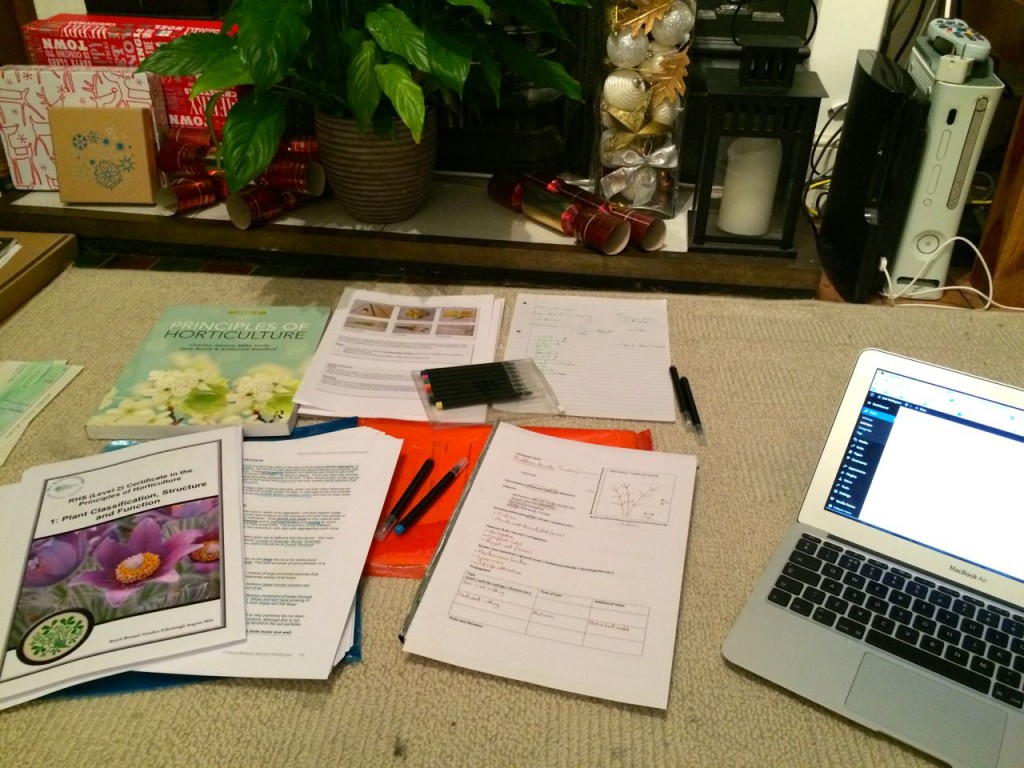
The major difference of course is that this is voluntary and I am actually loving it!
In September, without really thinking about it I plunged down some cold hard cash to join the RHS Level 2 Principles of Horticulture course, studying long-distance (with regular optional in-person study weekends) at the Royal Botanic Garden Edinburgh.
If you’re reading this, you probably know I’m all about making sure life experiences count and trying to ensure we make the most of every day. I have to say, this is one of the most rewarding things I’ve ever done. Why? I’ll blinkin’ well tell you! (of course, you don’t have to listen/read… 😉 )
Firstly, it’s helped my work. In my current role as a director of the UK’s largest education website, The Student Room, I communicate with students every day. In a few short months, this course has brought it all flooding back. I see from our audience’s eyes.
RHS Level 2 is said to be the equivalent of a GCSE, and it does feel like a GCSE Biology for Plants. Although I’d argue that while the principles and level do feel right for GCSE, the sheer volume of content and Latin names to learn goes way beyond what would be possible for GCSE students alongside other study.
I’ve learnt how I learn. By the time I reached A Levels I was so bored of my education I never really bothered to figure out how I learn, by Degree I was just sailing through without thinking how. Now however, I’ve figured out my pattern. I pick up principles instantly and they’re embedded forever. I struggle with memorising words and names. Which completely explains why I was always great at coursework and essays, but struggled at memory recall style cram-and-forget exams. I should have focussed so much more on the latter.
My view of the world has completely changed in only four months. RHS Level 2 may be GCSE level, but it’s a base level of knowledge on how and why plants have evolved, how they’re linked, the incredible complexity of their structures and life cycles. One of the most remarkable things I’ve learnt about. While I haven’t really wasted 33 years not knowing this because I have read about it before, I really, really wish I hadn’t waited so long to go into more depth. The evolution story in particular is the most remarkable thing.
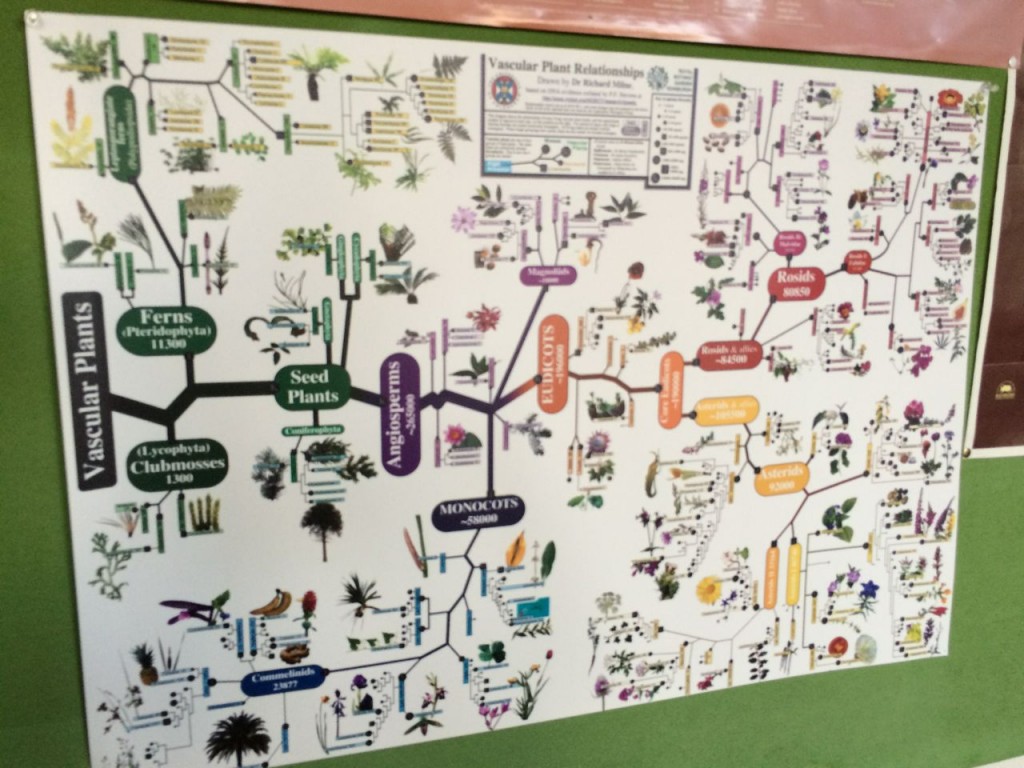
For the first time in all of my education, I feel like I am learning something new and worthwhile, something that goes beyond (what was to me) the core “this is what you need to know to get by in life”.
It’s interesting, the more I learn, the more I want to know. I can’t get enough! In the last few months I’ve literally read about 2,000 pages of plant information from the course notes to the 11 books I now have.
Listening to people is great, but learning yourself can be better. Learning from teachers in class certainly helps me, but only in a supplementary supporting role. I learn much better by studying in my own time and in my own way. I wonder how many students in the UK have that luxury when they’re forced to sit in class all day every day?
Best of all though, I’m no longer ignorant about something I didn’t even realise I was so ignorant about! I thought I knew so much about the plant kingdom and the way of the world. But there is so much more.
Oh, and also, experiments will always be brilliant no matter how old you are…
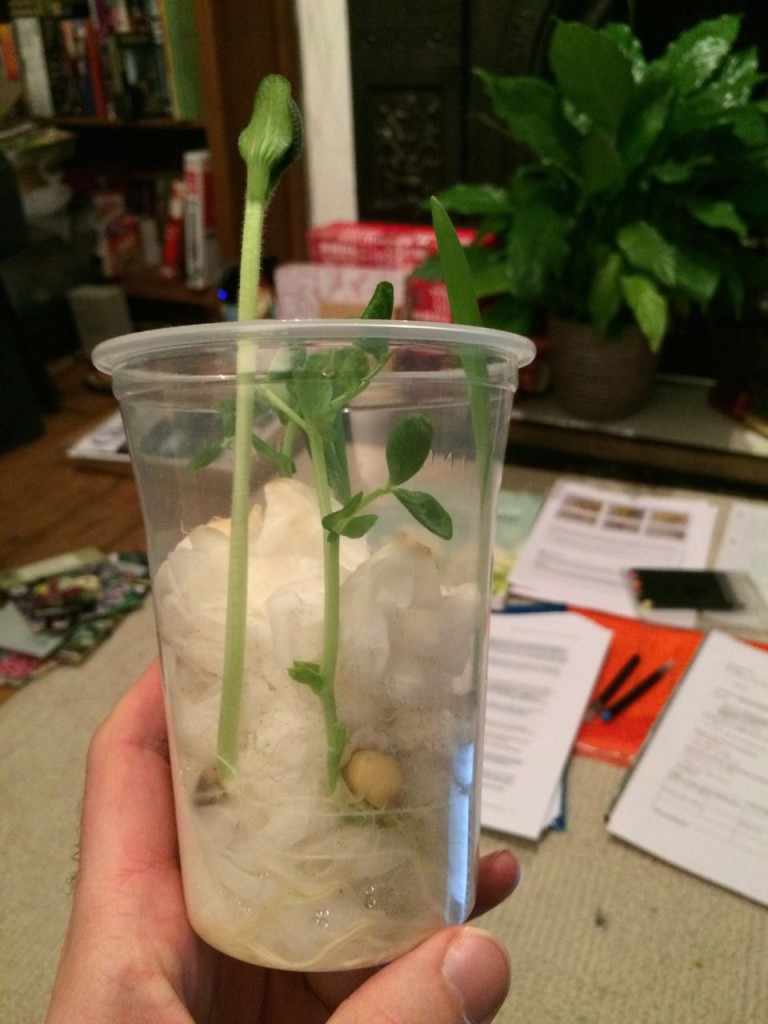

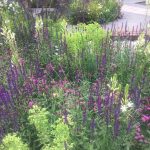
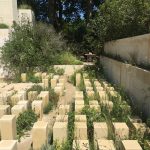

Hi there,
I’d like to do the RHS Level 2 Certificate 1: Principles of Plant Growth, Propagation and Development course which you talk about in this article. My dilemma is trying to figure out how much work this will involve and when it would be appropriate for me to register for the exams. I plan to start the course now in February 2018 (online learning, as I work full-time) and take the exams in June 2018. However I have been advised that taking all four exams in one day might be too much and it would be better to split them and do some in February 2019 – that seems like a long gap to me and I would want to be starting the Certificate 2 by September 2018 as well. Any advice on how many exams you took in one sitting would be gratefully received.
Hi Vanessa for level 2 I did four exams in one sitting and it was doable. It is a lot of work. I was lucky to drop down to four days a week at work to have an additional day of study. But I’d say go for it, if I can do it anyone can! It’s good to get it out the way in one blast while you’re enthusiastic I think.
Studying RHS level 2 e-learning in the classroom. Not my way of learning but now stuck with it. Any recommendations as to good books websites to find answers to questions. I thought it would be you get taught the information then homework based on what taught. Not educating yourself for 75 percent of all topics than homework based on what self taught.
If you join viewtopia.org and ask questions there I and others can reply and help you 🙂 I think forums are one of the best ways, they helped me learn – is studied mostly in the same way as you.
Hello Jack,
So glad I found you! I have just started my RHS Level 2. I am doing both theoretical courses together and have just been told by the tutors it’s not advisable! Too much wool for someone who’s also working! Please tell me it’s going to be ok. Also love the poster, what is it and where did you get it??
Thank you
Hi Cath, thanks for the post! Exciting about your course. I did both level 2 and level 3 over the course of a year or two, doing one certificate at a time. I found that pretty full on but it depends how good you are at remembering stuff and how much time you have to dedicate to it. I had the weekends and one day during the week. The poster isn’t mine sadly, it was in the class room of the Royal Botanic Garden Edinburgh where I studied.
Jack
Hi,
I too have learnt a huge amount about what my students are actually going through (been a very long time since I did any formal study!) I am a Director of Science in a secondary school and just started the RHS Level 2 – Principles. I am currently putting all my notes into ppt form as if I was preparing for a series of new lessons, hopefully that will help with my own learning?!?
I’m lucky that large chunks of the course are covered in GCSE Science/Biology so I’ve got a head start, but the latin names are killing me! Trying to treat them a bit like learning the Periodic Table and compounds (I’m a chemist teacher by training) but when you can’t pronounce the blooming things it’s tricky!
The provider I am using, a distance learning college, have ok booklets but they are quite frustrating when it comes to key definitions, almost contradicting themselves in a few places, so thanks for the forum info you put in a reply above. Which of the books you have do you recommend the most?
I agree that the level of it is appropriate in the most part, but there are aspects that really go beyond the scope of a GCSE – it’s almost a Level 2.5!
Cheers
Jane
Hi there, I know this thread is a bit old but hoping you’ll see this and be able to help. Having just started on the RHS Level 2 course, via distance learning, I’m looking for a recommended reading list to compliment my learning. I’m a bit book-obsessed (buy loads, read little) so hoping to buy only what will be super helpful and beneficial.
Many thanks and so far loving everything from growth, to colour, fractals and smells – feel like a kid in a candy shop.
What is the mind map called that you have in the photo of this article? Would be great if i can I buy something like this to help me with the exam in acouple of months time. Thanks. Becky